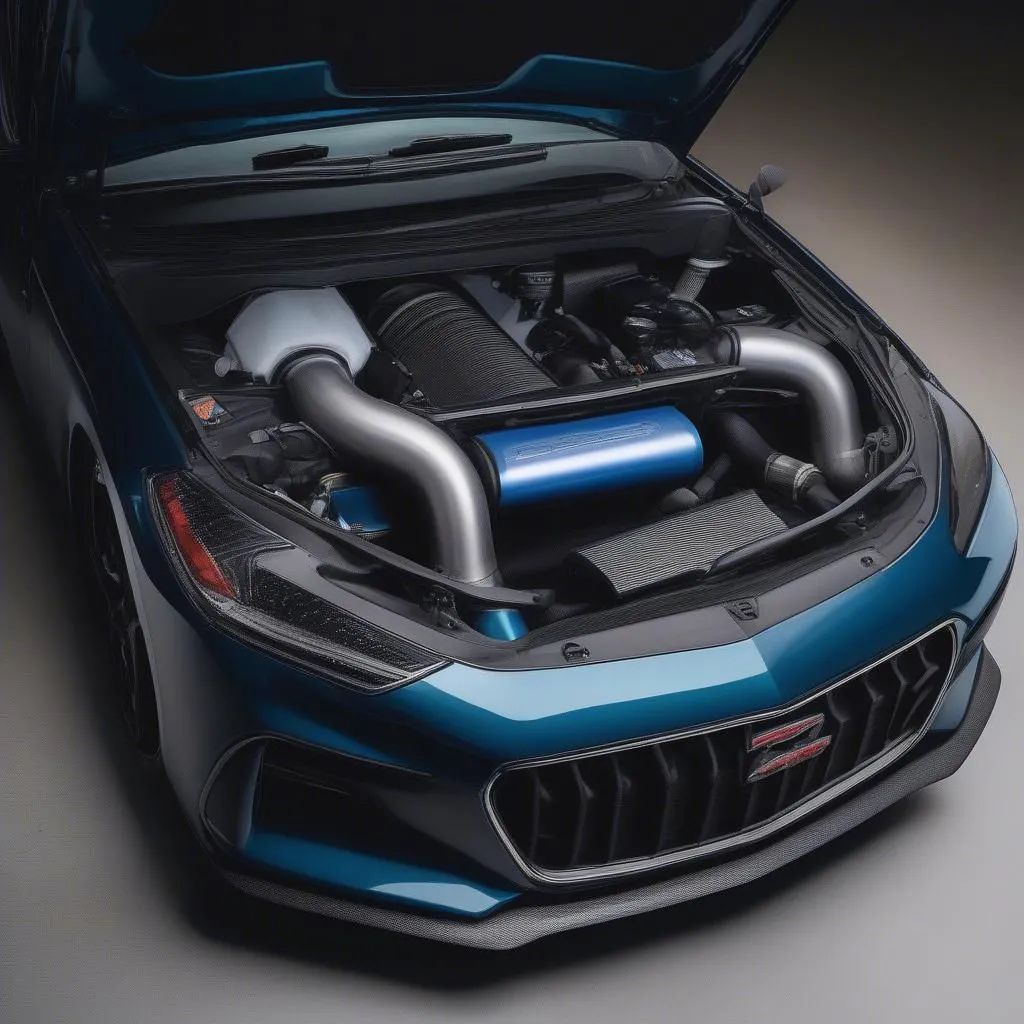Imagine this: you’re cruising down a scenic highway in California, the Pacific Ocean glistening on your right. You spot an opening and decide to overtake the car ahead. You push the gas pedal, but instead of the surge of power you expect, your car stutters and struggles. Disappointing, right?
If you’ve ever felt your car lacked that “oomph” when you needed it most, you’re not alone. Many drivers wonder, “How To Increase Acceleration Of Car?” The answer, however, isn’t always as simple as just upgrading to a sports car.
Understanding the Need for Speed: More Than Just a Thrill
From a mechanic’s perspective, car acceleration is more than just about getting from 0 to 60 mph as quickly as possible. It’s about your engine’s ability to efficiently convert power into motion.
Technically speaking, acceleration is a measure of how quickly your car’s velocity changes over time. The faster this change happens, the better your acceleration. In simpler terms, it’s your car’s ability to respond quickly when you hit the gas.
But why is this important? Well, good acceleration translates to safer overtaking, quicker merging onto highways, and an overall smoother, more enjoyable driving experience. It can even play a role in fuel efficiency.
Revving Up Your Ride: How To Increase Acceleration Of Car
So, how can you boost your car’s acceleration? Here’s the breakdown:
1. Lighten the Load:
Just like a sprinter carrying extra weight, your car will struggle to accelerate if it’s carrying unnecessary baggage. Remove any heavy items you don’t need from your trunk and backseats. Believe it or not, this small change can make a noticeable difference.
2. Optimize Your Tires:
Your tires are your car’s only point of contact with the road. Underinflated tires create more rolling resistance, forcing your engine to work harder. Make it a habit to check your tire pressure regularly and inflate them to the manufacturer’s recommended PSI. Also, consider high-performance tires with better grip for improved traction and acceleration.
3. Enhance Your Fuel System:
Your engine needs a steady supply of clean fuel to perform at its best. Using a high-quality fuel injector cleaner can help remove deposits that hinder fuel flow. For older vehicles, a fuel system service might be beneficial.
4. Unleash the Airflow:
Your engine needs to breathe to perform optimally. A clogged air filter restricts airflow, choking the engine and impacting acceleration. Replacing a dirty air filter with a new one can significantly improve your car’s pickup.
5. Consider Performance Upgrades:
For those seeking a more significant boost, aftermarket performance parts are the way to go.
- Cold Air Intake: A cold air intake system provides a denser, cooler air charge to your engine, resulting in increased power and improved throttle response.
- Performance Exhaust System: A less restrictive exhaust system allows your engine to exhale more freely, leading to increased horsepower and a sportier engine note.
** upgraded-car-engine-performance-parts
upgraded-car-engine-performance-parts
Expert Insight: Dr. Emily Carter, a renowned automotive engineer and author of “The Science of Speed,” states, “While simple maintenance can offer noticeable improvements, investing in performance upgrades can unlock a car’s true potential, especially for enthusiasts seeking a significant boost in acceleration.”
6. Chip Tuning: A Word of Caution
While chip tuning, also known as ECU remapping, can potentially increase horsepower and acceleration, it’s crucial to approach it with caution. Improper tuning can lead to engine damage and void your warranty. Always consult with a reputable and experienced professional before opting for this modification.
7. Regular Maintenance is Key
No matter what steps you take to increase your car’s acceleration, regular maintenance is paramount. Schedule regular tune-ups, oil changes, and inspections with a trusted mechanic to ensure your engine is running at its best.
FAQs: Addressing Common Questions About Car Acceleration
Q: Can a dirty air filter really affect my car’s acceleration that much?
A: Absolutely! A dirty air filter restricts airflow to the engine, starving it of the oxygen it needs for combustion. This can lead to sluggish acceleration, reduced power, and even decreased fuel economy.
Q: I’ve heard lighter wheels can improve acceleration. Is that true?
A: Yes! Reducing the weight of your wheels and tires, also known as reducing “unsprung weight,” can significantly improve your car’s acceleration and handling. Lightweight wheels and tires require less energy to rotate, allowing your engine to accelerate more efficiently.
Q: What about using a higher octane fuel? Will that help?
A: While higher octane fuel can prevent engine knocking in high-performance engines, it won’t necessarily improve acceleration in a car not designed for it. Refer to your owner’s manual to determine the recommended octane rating for your vehicle.
Q: Is it possible to increase the acceleration of an electric car?
A: Electric cars are known for their instant torque and impressive acceleration. While traditional methods like air intake and exhaust upgrades don’t apply, some electric car manufacturers offer software updates that can unlock more power and improve acceleration.
Need Help with Your Car’s Performance?
Struggling to diagnose a car acceleration problem or want expert advice on boosting your car’s performance? Don’t hesitate to contact us! Our team of experienced automotive technicians is available 24/7 to assist you. Send us a message on Whatsapp at +84767531508, and we’ll be happy to help you get your car running at its best.
Keep Exploring:
- Curious about how to diagnose and fix common OBD codes? Check out our comprehensive guide on code OBD P2002.
- Experiencing car lags when accelerating? We’ve got you covered with our detailed article on troubleshooting car acceleration issues.
**
Wrapping Up:
Increasing your car’s acceleration is about finding the right balance between maintenance, upgrades, and driving habits. Whether you’re looking for a subtle improvement or a significant power boost, understanding the factors that influence acceleration can help you make informed decisions to unleash your car’s full potential and enjoy a more exhilarating driving experience.